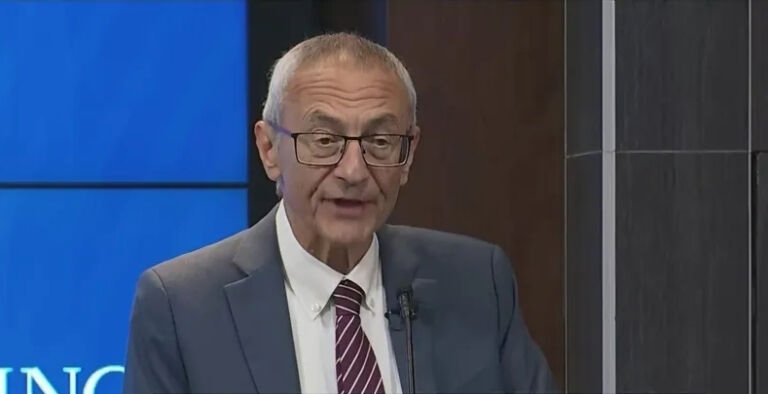- An investigation by the North Carolina Office of the State Auditor exposed corruption and incompetence in the city government of Rocky Mount
- State Senator Lisa Barnes has introduced legislation that would ban the corrupt practices exposed by the investigation
- The North Carolina NAACP claims that the anti-corruption bill would “strip black people of their vote and their voice”
One of North Carolina State Auditor Beth Wood’s official duties is to receive and investigate reports of “improper governmental activities.”
So the Office of the State Auditor (OSA) initiated an investigation after receiving 213 complaints of alleged misconduct by elected officials and employees of Rocky Mount, a city straddling the border of Nash and Edgecombe counties in eastern North Carolina. It issued a report of that investigation last May.
Something Is Rotten in the City of Rocky Mount
The OSA’s investigation exposed corruption and fiscal incompetence in the city. Most of the OSA’s report of its investigation on Rocky Mount dealt with run-of-the-mill problems such as failing to follow program spending guidelines or overspending on travel expenses. The report also exposed some big-league corruption in the form of city officials allowing a city council member to write off over $47,000 in utility bills (page 2 of the report):
Instead of disconnecting the Council Member’s services, both the prior City Manager and the former City Manager allowed the Council Member to receive utility services while his delinquent balance continued to accumulate. In 2013 and 2017, under the tenure of the former City Manager, the Finance Director wrote off $47,70411 in outstanding utility bills for the Council Member.
The report does not mention the councilman by name, but a Nash County newspaper, The Enterprise, discovered it through a Public Records Request. The council member’s name is Andre Knight.
The OSA report also noted that Knight actively sought to get the meddlesome bureaucrat who was trying to collect his unpaid bills off of his back by complaining to that bureaucrat’s boss (page 3 of the report):
In June 2016, the Business Services Manager contacted the Council Member regarding past due accounts. The Council Member contacted the former City Manager to complain about those conversations. The former City Manager then instructed the Finance Director to handle the Council Member’s account moving forward. In a June 10, 2016 email, the former City Manager told the Finance Director, “Ask the Business office to not call [Council Member] about his utilities. If there is an issue either go through you or me.”
The General Assembly Seeks to Uproot Local Corruption
Members of the General Assembly have introduced legislation to fight the corruption unearthed by Wood’s investigation. Senate Bill 473, “Enhance Local Gov’t Transparency,” is sponsored by representatives Lisa Barnes (R–Johnston, Nash), Norman W. Sanderson (R–Carteret, Craven, Pamlico), and Chuck Edwards (R–Buncombe, Henderson, Transylvania).
Barnes, whose district includes the Nash County portion of Rocky Mount, has spearheaded the effort to fight the corruption the audit exposed in her district. She introduced S.B. 473 to strengthen state audits on counties and municipalities and prevent local government officials from using their official positions to benefit themselves financially.
Analysis by General Assembly legislative staff found that the bill would, among other things:
-
Require a local finance officer to garnish a board or council member’s compensation in order to collect monies owed for unpaid county and city services.
-
Create a new felony offense for public officers and employees who personally benefit financially from their position.
-
Would, subject to certain exceptions, prohibit public officials from participating in making or administering a contract, including the award of money, with any nonprofit with which the public official is associated and would create a misdemeanor offense for such violations.
As befitting a bill that addresses a clear and pressing need to halt corruption, it passed the Senate with a large bipartisan majority, with all Republicans and all but six Democrats voting in favor. The House Judiciary Committee is now considering it.
Is Uprooting Local Corruption Racist?
One of six senators who voted against S.B. 473 represents the Edgecombe County side of Rocky Mount, Sen. Milton “Toby” Fitch (D–Edgecombe, Halifax, Wilson). He used some interesting logic to justify his opposition. He essentially argued that the legislature should not make it illegal for public officials to use their positions to benefit financially because current law does not make it illegal for public officials to use their positions to benefit financially. As The Enterprise reported:
Fitch said the legislation was filed in response to an audit that didn’t result in criminal charges. …
“It just seems like what is happening in this particular bill is somebody did not like the results of the audit report by the state auditor,” Fitch said.
While Fitch’s argument against the anti-corruption bill is peculiar, the North Carolina NAACP’s caricature of the bill is bizarre. A statement posted by the group on its Facebook page claims that it is a “voter suppression” bill that would “strip black people of their vote and their voice” and that Democrats are being bullied into supporting it because they are “terrified to withstand the tide of voter suppression under a thinly veiled call to transparency and accountability.”
They called on Democrats to oppose the bill, a call that has so far been little heeded.
The group shifts from bizarre to vile in their attacks against the two women who have drawn their ire (third page):
The truth is that Beth Woods [sic] and Lisa Barnes, a Democrat and a Republican, are operating tactics and strategies out of the old 1898 racist playbook.
That is a reference to the white supremacy campaign that Democrats used to beat a coalition of Republicans and Populists in the 1898 election and the subsequent race massacre and coup in Wilmington.
Perhaps this is a surprise to no one: Andre Knight is the head of the Rocky Mount branch of the NAACP.
Senate Bill 473 addresses the kind of incompetence and malfeasance that the Office of the State Auditor exposed in its investigation of Rocky Mount. Despite the wrongheaded and malicious opposition to the bill and its main sponsor, it is a necessary counter to corrupt practices by local officials that the General Assembly should send to Gov. Roy Cooper’s desk.


